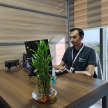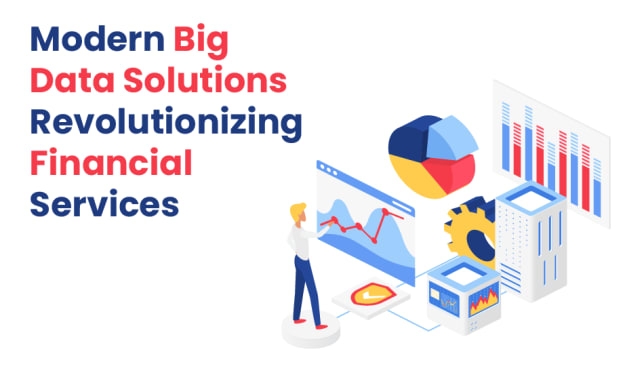Comparing the SaaS PaaS and IaaS Cloud Development Services
The blog makes a detailed comparison between the three main cloud development services, namely SaaS, PaaS, and IaaS by comparing the main features and benefits.

Cloud computing adoption is on a continuous roll with organizations of all sizes and types embracing it in large numbers. At a time when we are writing this blog, almost more than 94% of companies, comprising of startups and tech giants have already adopted cloud computing services, according to an article published in Forbes.
Now that tells you the story of why business enterprises are so keen on investing in cloud development services. They want to curtail their upfront and high maintenance costs associated with managing physical servers and on-premise infrastructure. The aim is to shift towards a more agile, scalable, and flexible on-demand cloud computing platform, providing substantial benefits.
In this following blog, we will compare the three main types of cloud development services - Software-as-a-Service (SaaS), Platform-as-a-Service (PaaS), and Infrastructure-as-a-Service (IaaS). Once you are familiar with the key differences between these three cloud computing platforms, you will be able to know and choose the right service based on your business model and requirements.
We will start with their definitions, then highlight their key features and functionalities, their core benefits, and when you should choose a particular cloud computing platform.
What is a SaaS Platform?
SaaS or Software-as-a-Service is a type of cloud computing service where the cloud service provider hosts applications and makes them available to end-users over the Internet, It is a software distribution model that allows independent software vendors to get in touch with third-party service providers to host the application. In the case of tech giants like Microsoft and Adobe, the cloud provider and the software vendor are the same.
SaaS is one of the major players among the three cloud computing categories, besides platform-as-a-service and infrastructure-as-a-service. Businesses of all sizes and types use SaaS tools and its customers include both B2B and B2C users.
According to leading global data and statistics firm Statista, the SaaS market is projected to grow to $818.80 billion by 2029.
If we talk about the common functions that SaaS cloud apps perform they are email, calendering, video conferencing, team collaboration, file sharing, and storage.
An organization can build different types of SaaS applications, catering to diverse industry verticals. These include enterprise resource planning, customer relationship management, human resource management, project management, finance and accounting, eCommerce, inventory management, and many more.
Essential Features and Benefits of SaaS Cloud Computing Solutions
Any business enterprise that wants to build a SaaS tool must know its pivotal features and benefits before discussing their project with the cloud consulting company.
Automatic Updates- The benefit of using a SaaS platform is that it gets automatically updated to the latest version of the software, which saves a lot of time and money.
Robust Security and Improved Reliability - Software-as-a-service applications are known for their fortified security that helps to keep sensitive information safe and secure. It also provides robust disaster recovery plans in case of an unexpected outrage.
Faster Deployment Times - One of the best features of SaaS cloud apps is that you can deploy them quickly and seamlessly as they do not require any separate installation and configuration on individual servers.
Enhanced Scalability - Companies are also interested in investing in the SaaS model because it offers enhanced scalability, flexibility, and agility. It allows them to expand their business operations and also handle increased customer demand and traffic with ease.
Cost-Effectiveness- SaaS cloud development services offer cost-effective solutions and it is based on the subscription model. It means that users have to only pay for what they use on a monthly or annual basis,
Top brands and companies using SaaS cloud apps are Microsoft, Google, Salesforce, Adobe, Shopify, Zoom, Slack, and many more.
What is the PaaS Platform?
PaaS or Platform-as-Service is a cloud computing service model that allows a third-party cloud service provider to deliver software and hardware solutions to users over the Internet. The PaaS cloud computing model is known for its high-end scalability and flexibility to develop, deploy, run, and, manage cloud apps.
Like SaaS, cloud engineers don’t have to update the operating system, maintain hardware, and develop tools. When an organization decides to implement PaaS cloud development services, it tends to save costs by not having to install the software or hardware and host custom applications. It can simply choose the pay-as-you-go model, similar to SaaS to access and build everything.
The common PaaS functionalities include application development, deployment, testing, database management, application hosting, middleware, and many more. Statista predicts that the PaaS market size will reach $ 386.9 billion by 2029.
Essential Features and Benefits of PaaS Cloud Computing Solutions
Reducing the Operational Costs - As we have mentioned earlier, organizations can minimize their operational costs as PaaS cloud apps help to eliminate the investment required in deploying, deploying, running, and managing applications.
Increased Scalability - To cater efficiently to the growing and evolving demands of diverse customer bases, PaaS allows its cloud models and resources to become highly scalable, which helps to increase satisfaction levels.
The Multi-Cloud Deployment Option - By choosing PaaS cloud computing services, you get the option of deploying your application on popular multiple clouds, such as Microsoft Azure, AWS, and GCP. PaaS also streamlines the cloud migration services with enhanced interoperability and superior infrastructure.
Support of Distributed Teams and Community - Since PaaS cloud services can be accessed over the Internet, it allows the different development teams across various locations to work together and collaboratively on the project.
Seamlessly Manage the Application Lifecycle- Implementing the PaaS cloud model enables organizations to seamlessly and efficiently manage their cloud apps, such as building, deploying, testing, managing, and more.
Top brands and companies providing PaaS are Microsoft Azure, AWS, Google Cloud, IBM, Oracle, and SAP.
What is an IaaS Platform?
IaaS is a type of cloud computing service that offers on-demand access to scalable cloud computing resources as services over the Internet. When you choose the Infrastructure-as-a-Service cloud computing model, your cloud service provider will handle all the IT infrastructure, including network resources, servers, and storage, delivering them through virtual machines.
Business enterprises do not have to procure, configure, and manage infrastructure by themselves and they only have to pay for what they use.
The common IaaS functionalities include computing resources, networking, storage solutions, scalabikty and load balancing, disaster recovery, monitoring, and management. Fortune Business Insights estimates that the IaaS market size is estimated to touch around $738.11 billion by 2032.
Essential Features and Benefits of IaaS Cloud Computing Solutions
Budget-Friendly - The cloud consulting company provides cost-effective IaaS cloud computing services as users don’t have to pay for upfront costs. They only pay for computing storage and networking resources.
Create Innovative Software Applications - Yes, IaaS allows developers to create innovative software products and applications with speedy development lifecycles and faster time-to-market.
Support Web Application Development - IaaS provides the development with all the necessary infrastructure tools, including storage and robust APIs to support web application development and deployment.
Lift-and-Shift Migration - Cloud consulting and development firms use the fastest and most affordable cloud migration services for transiting an application or workload on the cloud.
Lower Latency - IaaS cloud computing allows you to place the applications and services in regions and zones closest to your users to reduce latency and enhance overall cloud performance.
Conclusion
So, now that you are familiar with SaaS, PaaS, and IaaS cloud computing services, you can easily choose them to upscale your business processes and improve overall performance, and scalability.
If we have to specifically pick any one of these cloud computing services, it will be a very tricky situation because SaaS, PaaS, and IaaS all play pivotal roles in providing enhanced scalability, reducing operational costs, and fortifying security.
IaaS provides the basic and strong infrastructure, while PaaS offers an application development platform and SaaS delivers ready-to-use software.
About the Creator
Dipen Patel
Dipen is an expert when it comes to Software Development & Programming in Full-stack and open-source environment. He has been working as the Chief Technology Officer at Quixom, providing a wide range of IT solutions.
Enjoyed the story? Support the Creator.
Subscribe for free to receive all their stories in your feed. You could also pledge your support or give them a one-off tip, letting them know you appreciate their work.






Comments
There are no comments for this story
Be the first to respond and start the conversation.